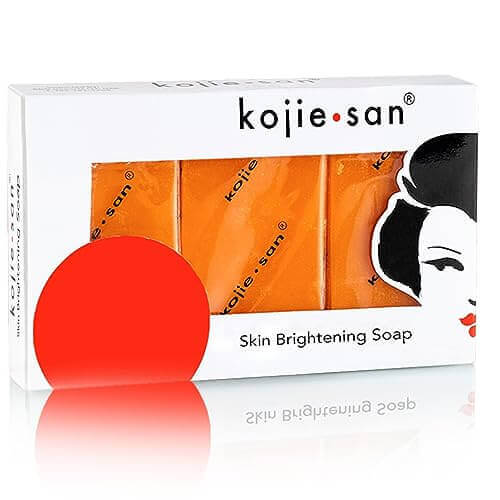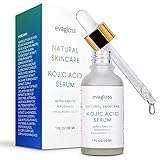
Overview

Kojic acid (KA) is a naturally-derived ingredient that has become very popular with dermatologists for skin brightening applications. Kojic acid is made by several different types of fungi, with the most well known one being Aspergillus oryzae. (called koji in Japanese). It is also a byproduct of fermentation of foods such as Japanese sake, soy sauce and rice wine. Ironically, KA also has antifungal properties.
Kojic acid blocks UV-activation of tyrosinase, which in turn limits the production of melanin. Kojic acid can lighten existing age spots, sunspots and photodamage; fade dark marks from acne scarring and pimples; and even slightly improve melasma.
Cosmetic Versions
Kojic acid has been approved for use in cosmetic products in concentrations of 2 percent or lower. Nowadays, you can buy many over-the-counter skincare products that contain kojic acid. This includes skin lightening creams, lotions, soaps, serums, cleansers and powders. Many pharmaceutical and cosmetic products contain kojic acid due to its improvement of skin color disorders. Cerams, lotion and serums containing KA are meant to be applied to the skin and left on to get absorbed. In contrast, soaps and cleansers containing KA are meant to be applied and washed off rapidly.
According to Dr. Sheila Nazarian, kojic acid works well with and enhances the effects of glycolic acid and hydroquinone. However, do note that the last mentioned ingredient is not always safe in people with darker skin and needs to be used under supervision.
Side Effects and Concentration Levels
According to a 2010 Cosmetic Ingredient Review (CIR) Expert Panel, Kojic acid is safe to use as long as it is at a concentration level of 2% or lower in leave-on cosmetics. Of course you still need to take the usual precautions of not ingesting it or getting it into your eyes by mistake. If you leave any kojic acid product on your skin for too long, it can result in contact dermatisis, skin redness, irritation, itchiness and inflammation. Do not use it on broken or wounded skin.
While raw kojic acid is available, cosmetic products always contain a highly diluted level of the ingredient. A concentration level of 1 to 2 percent is recommended in order to reduce the chances of skin outbreaks and irritation. Do not ever try to apply raw kojic acid to your skin as it can be very dangerous.
Kojic Acid Soap Results
The below is a great video testimonial from a patient who used Kojic acid soap for a week on her face on one of her hands. The before and after results were good considering the short time frame of the experiment. Her facial skin looked brighter and more glowing after a week, with slight improvement in the uneven skin tone. Her knuckles on the hand on which she used the Kojic acid soap became lighter.
Some of the comments recommend being gentle while lathering the soap and keeping it in contact with the facial skin for a reasonable time period. Too short and the effectiveness will be limited since kojic acid can take a while to penetrate the skin. Too long and there could be side effects such as excessive skin dryness that would then require moisturizers.